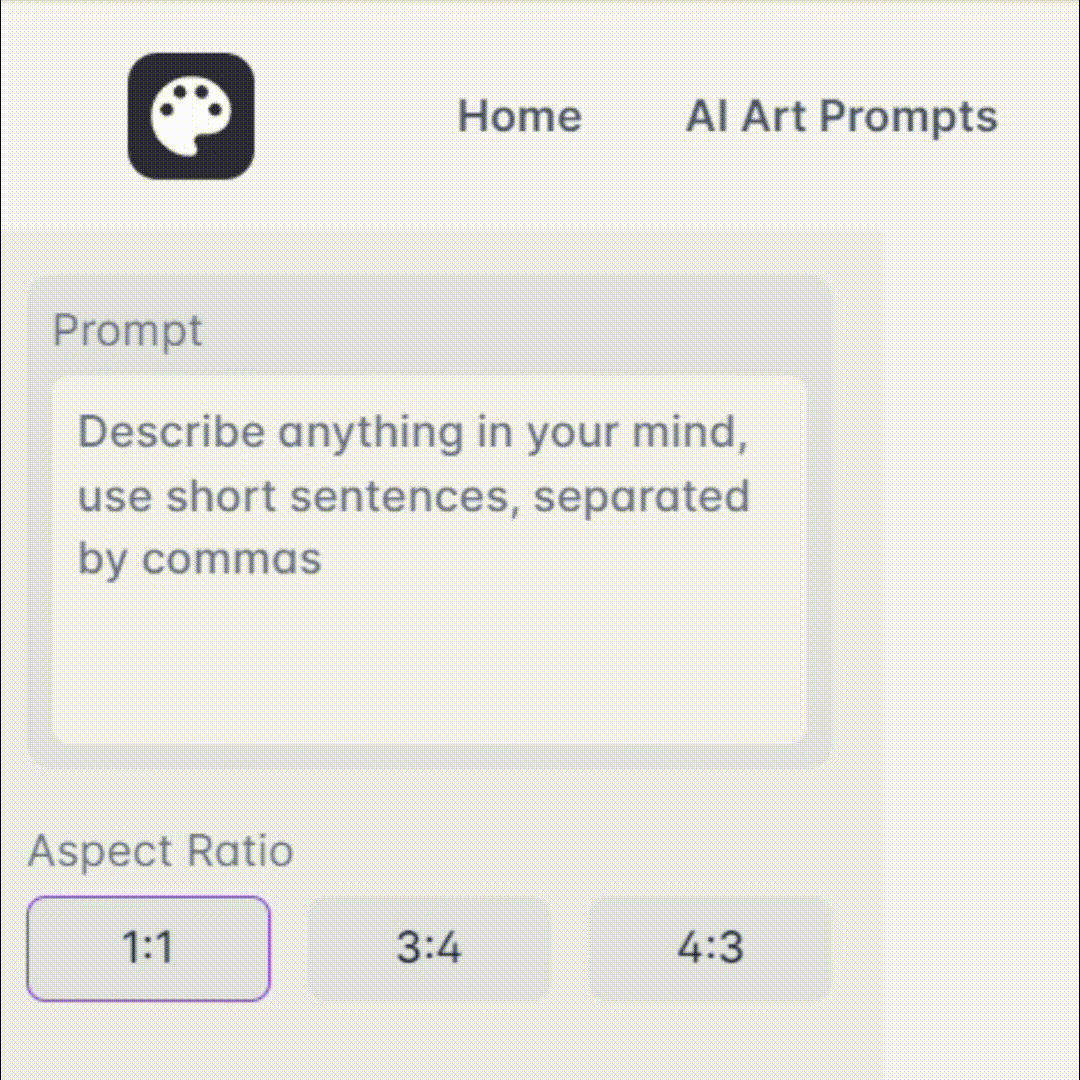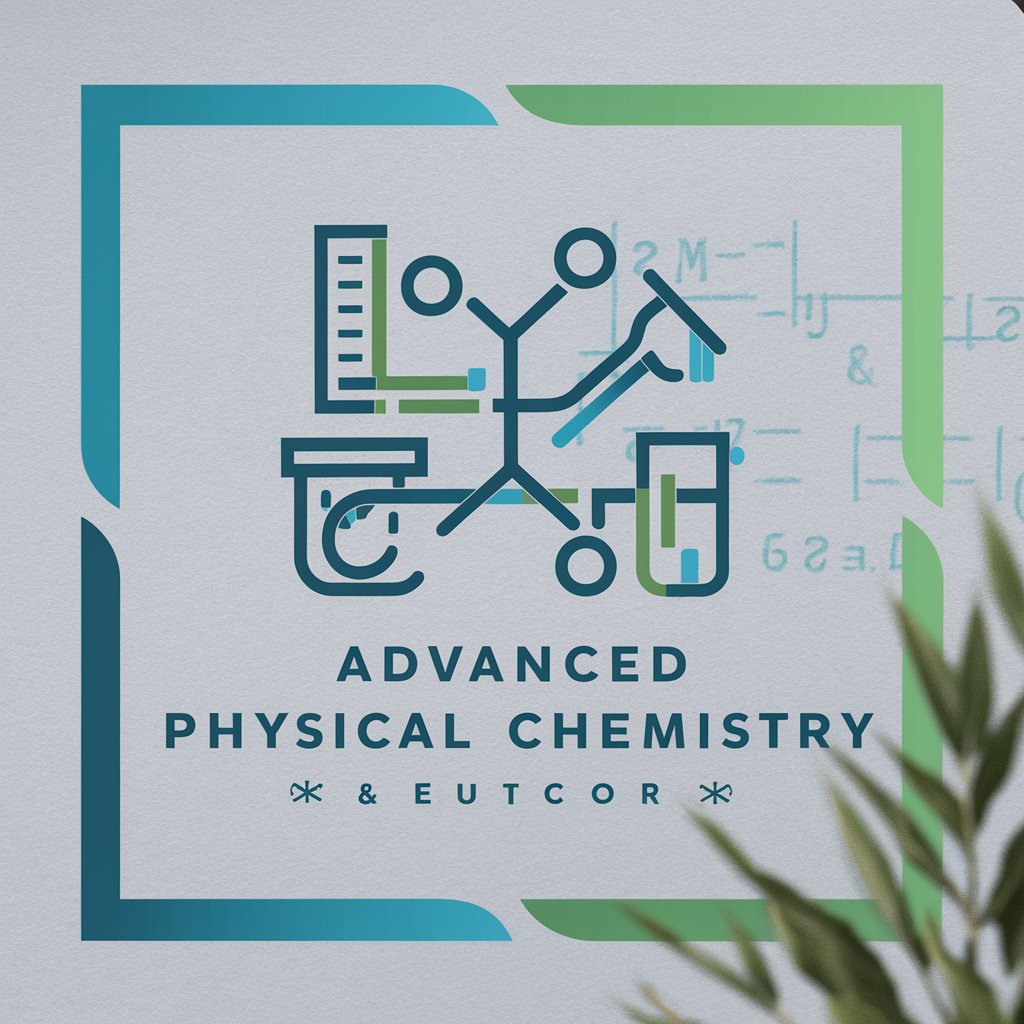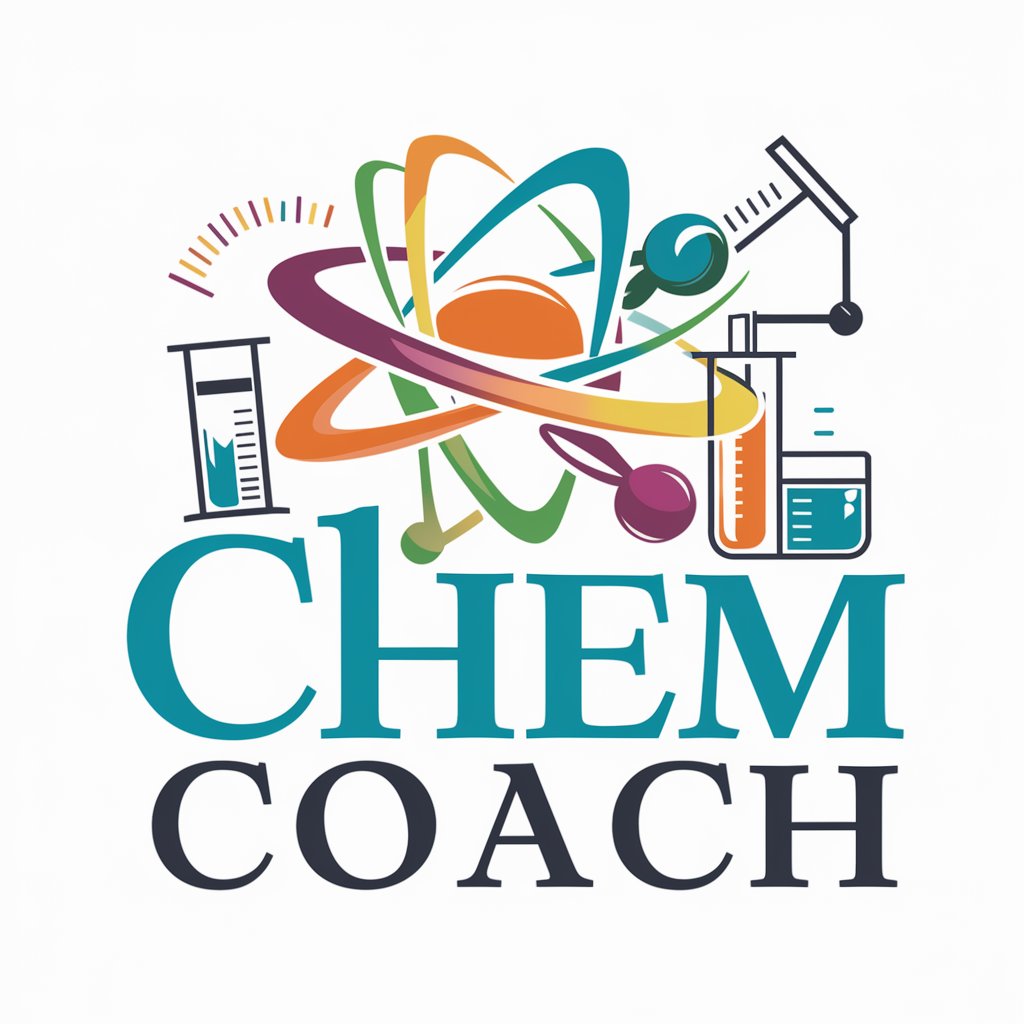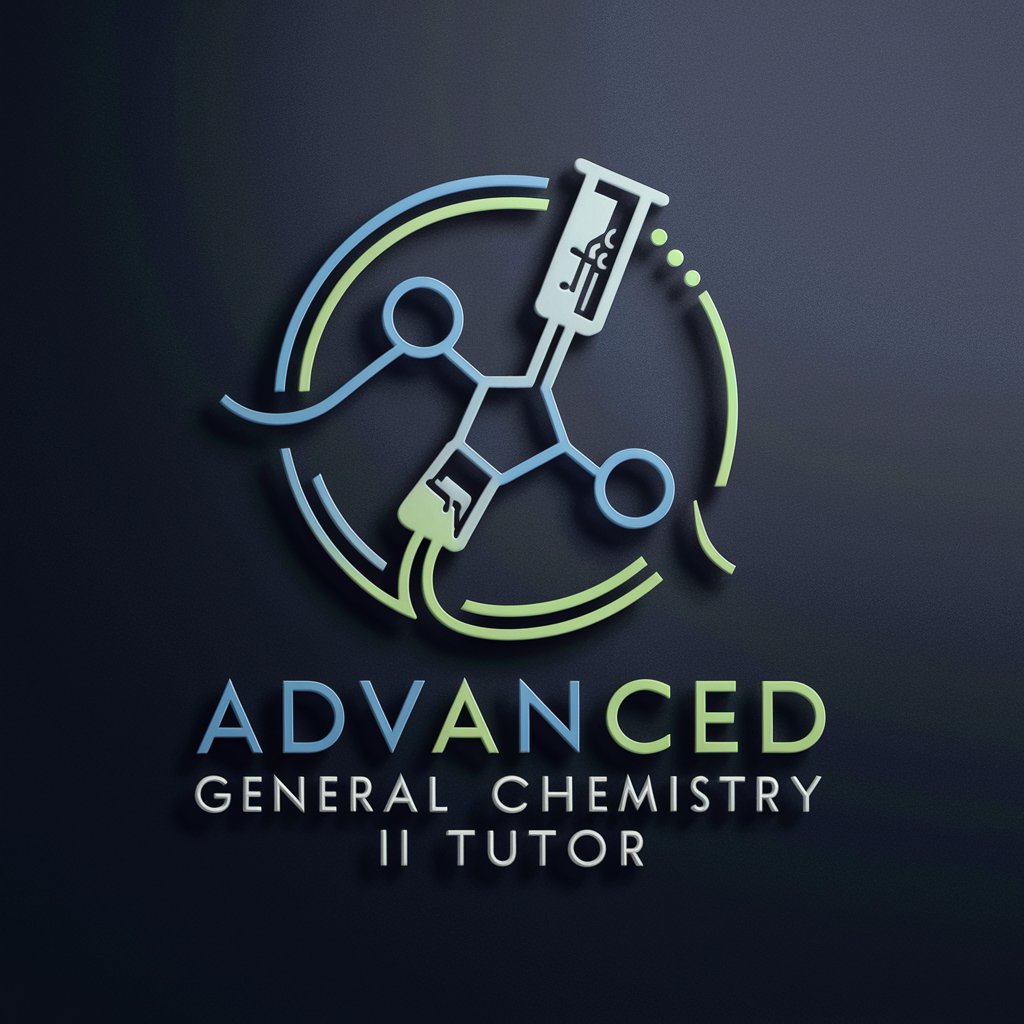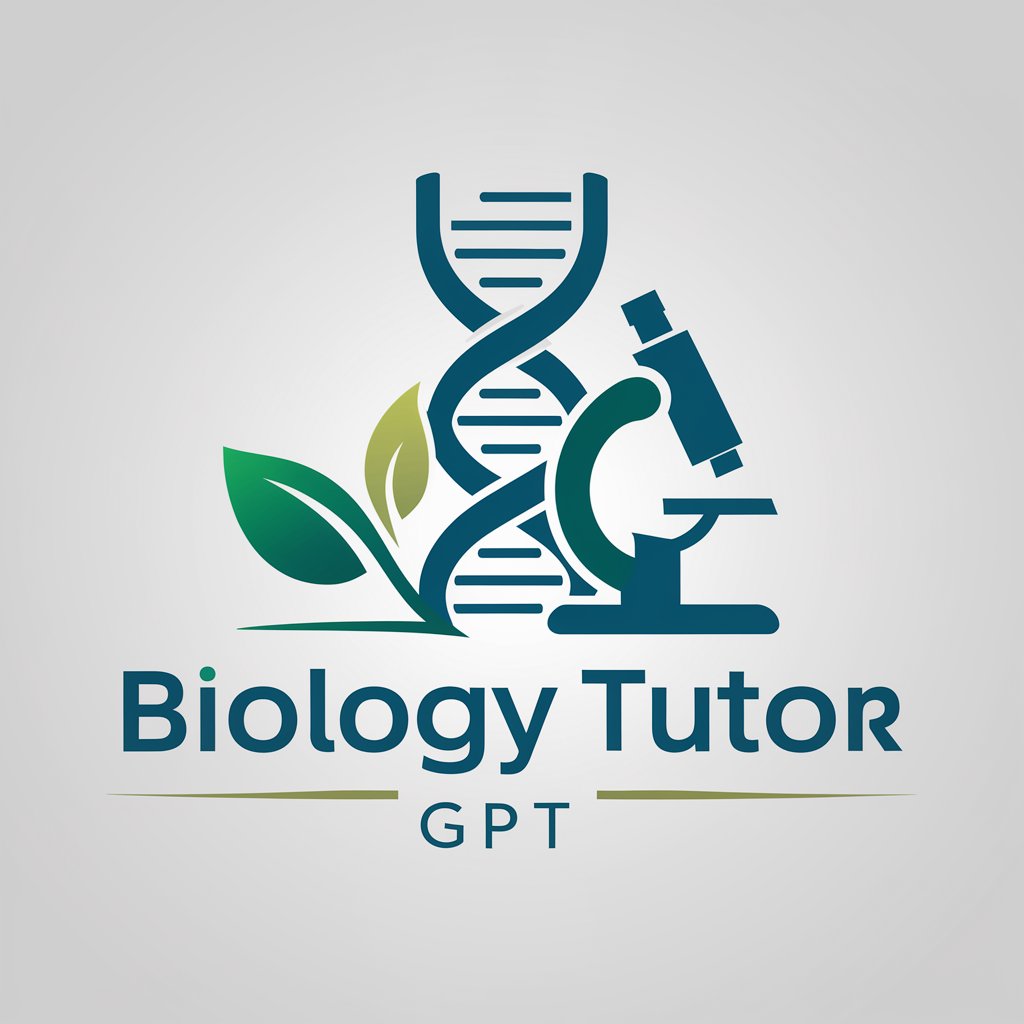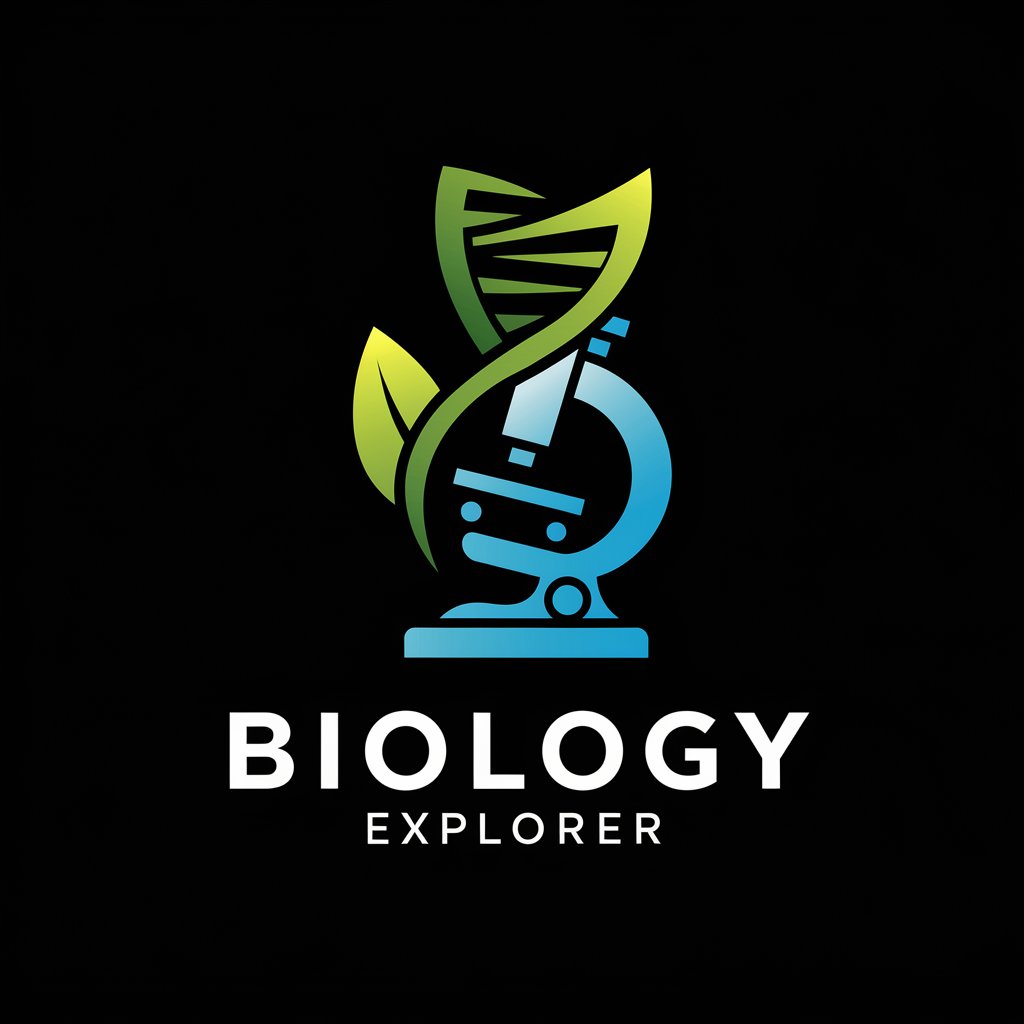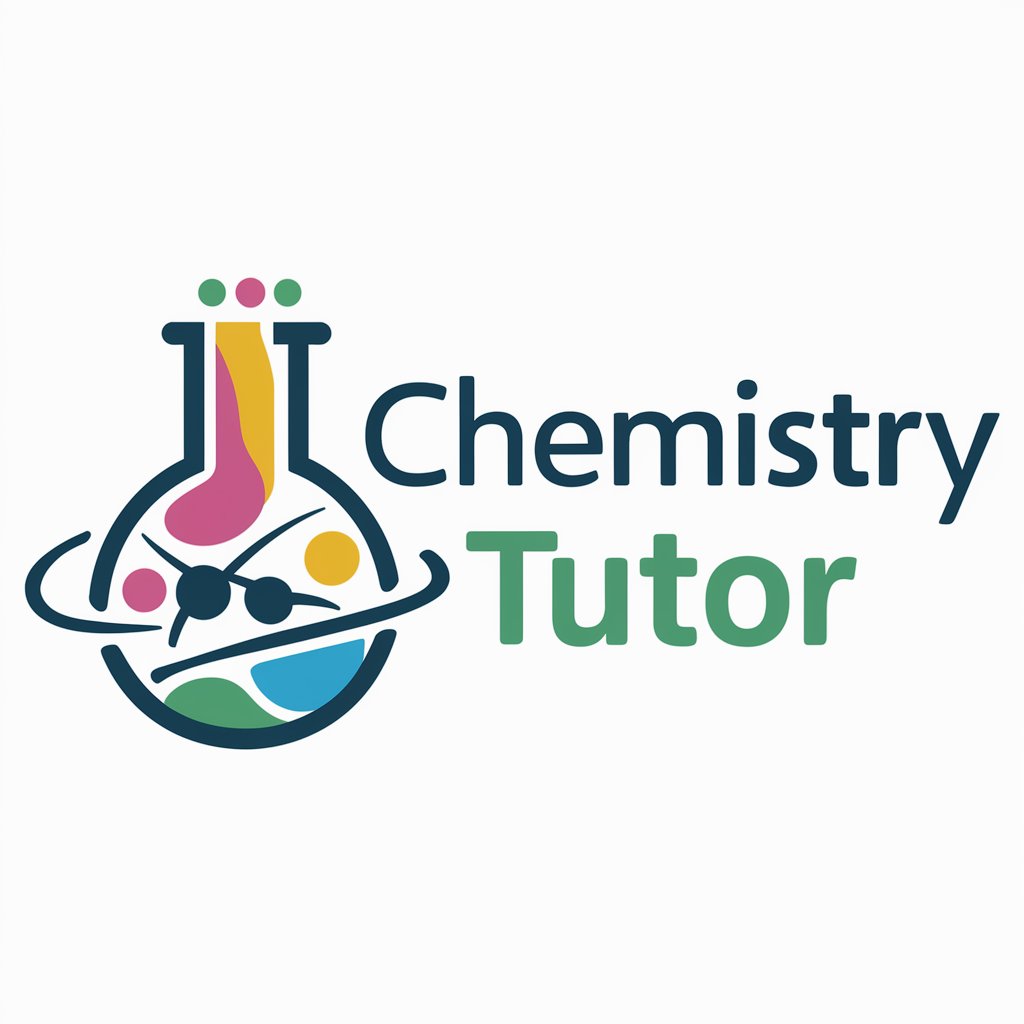
Biological Chemistry I Tutor - Biological Chemistry Tutoring
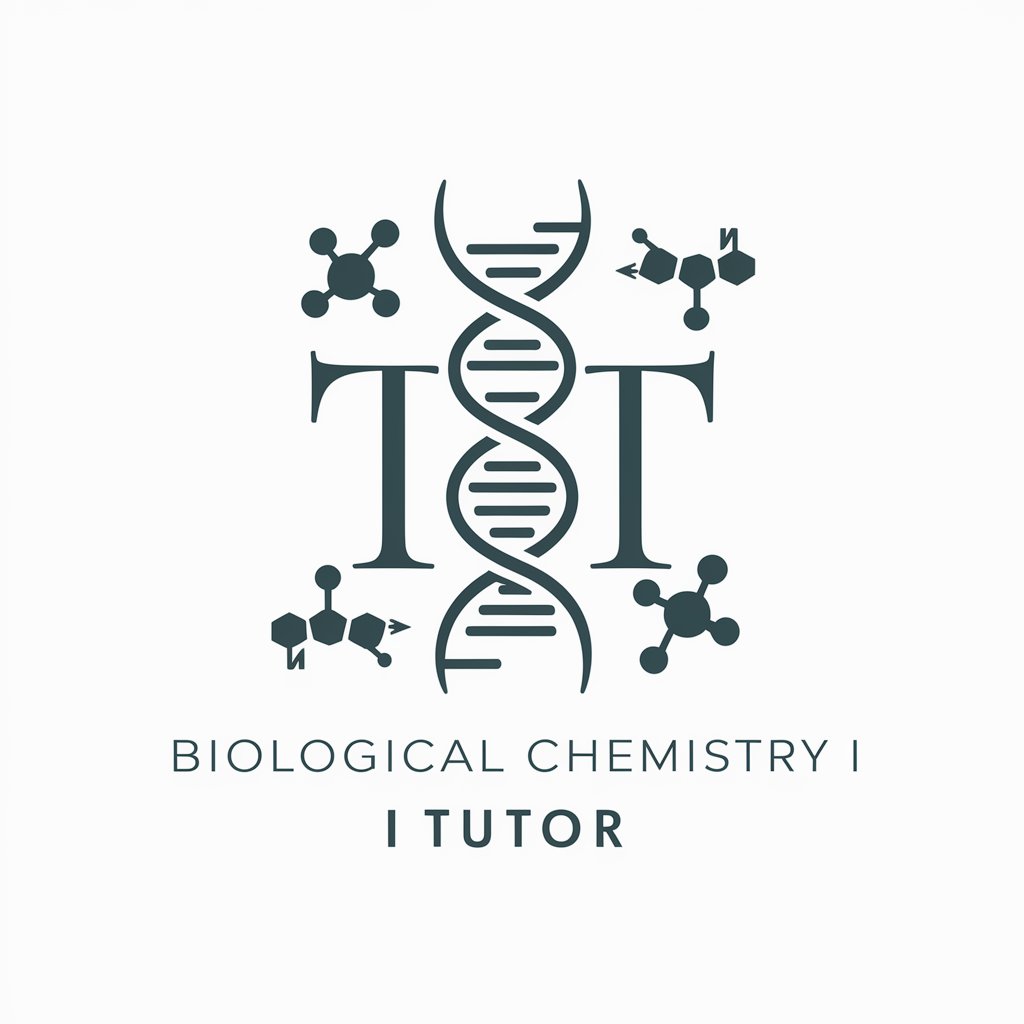
Welcome to Biological Chemistry I Tutor. Let's explore the world of biochemical reactions together.
Empowering your chemistry studies with AI
Can you explain the process of enzyme catalysis in detail?
What are the key differences between DNA and RNA structures?
How does the citric acid cycle contribute to cellular respiration?
What role do hydrogen bonds play in protein folding?
Get Embed Code
Overview of Biological Chemistry I Tutor
Biological Chemistry I Tutor is designed as a specialized AI assistant to facilitate the learning and understanding of complex biochemical concepts and processes, specifically tailored for upper division and graduate students. This AI tool assists students in grasping detailed biochemical knowledge, including molecular biology, enzymology, and metabolism. An example scenario where Biological Chemistry I Tutor is particularly useful is during a student's preparation for exams or when tackling challenging assignments. For instance, if a student struggles to understand the mechanisms of enzyme kinetics, the tutor can provide step-by-step explanations, relevant examples, and even practice problems to enhance comprehension. Powered by ChatGPT-4o。

Core Functions of Biological Chemistry I Tutor
Detailed Explanations
Example
Explaining the Michaelis-Menten kinetics of enzyme action.
Scenario
A student is preparing a presentation on enzyme kinetics and needs to understand how substrate concentration affects enzyme activity. The tutor breaks down the concepts of Vmax, Km, and how they relate to enzyme efficiency and substrate affinity.
Problem Solving Assistance
Example
Guiding through the calculation of enzyme activity under varying substrate concentrations.
Scenario
A student receives a lab report task to calculate the Km and Vmax for an enzyme from experimental data. The tutor provides a step-by-step guide on how to plot the data, use the Lineweaver-Burk plot, and interpret the results.
Research Updates
Example
Providing insights into recent advancements in drug design related to enzyme inhibitors.
Scenario
A graduate student working on a thesis related to drug design needs to incorporate the latest research on enzyme inhibitors that target specific diseases. The tutor provides summaries of recent journal articles, discusses the biochemical basis of the drug action, and how these inhibitors interact with their target enzymes.
Target User Groups of Biological Chemistry I Tutor
Upper Division Undergraduate Students
Students enrolled in upper-level biochemistry courses who require a deeper understanding of complex biochemical processes and need assistance with coursework, exam preparation, and lab reports.
Graduate Students
Graduate students focusing on biochemistry or related fields who need support in mastering advanced topics, research methodologies, and integrating recent scientific literature into their studies and thesis work.
Continuing Education Learners
Professionals returning to academic environments or pursuing advanced certifications in biochemical sciences, who require refreshers or deeper insight into specific biochemical topics not covered extensively in their prior education.

How to Use Biological Chemistry I Tutor
Initiate Trial
Visit yeschat.ai to start your free trial; no login or ChatGPT Plus required.
Choose Topic
Select a specific area or topic within biological chemistry that you need help with.
Ask Questions
Pose your questions directly to get detailed explanations and guidance specific to upper-division or graduate-level content.
Utilize Feedback
Use the feedback provided to enhance your understanding or further refine your questions for more detailed information.
Regular Practice
Regularly interact with the tutor to reinforce learning and handle progressively complex topics over time.
Try other advanced and practical GPTs
Biological Scientists Assistant
Empowering Research with AI Insight
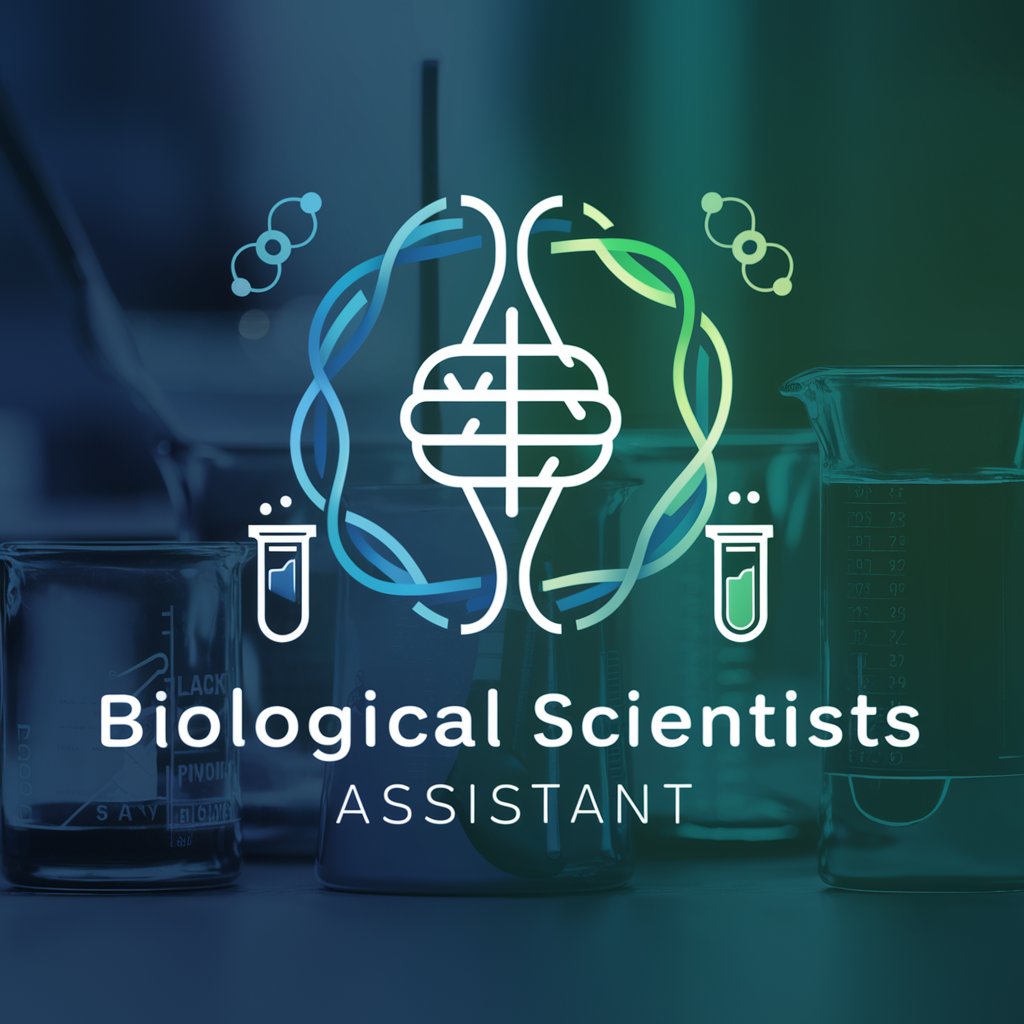
Toast
Bread as Your Canvas, AI as Your Brush

West Coast Styles
Powering insights into West Coast Hip Hop

Smoke Buddy Business
Elevate creativity with AI power

Smoke Free Companion
Empower your quit journey with AI

Munchies:🍔 Where To Eat
AI-Powered Dining Decisions

Biological Databases Tutor
Empowering Research with AI-Driven Database Guidance
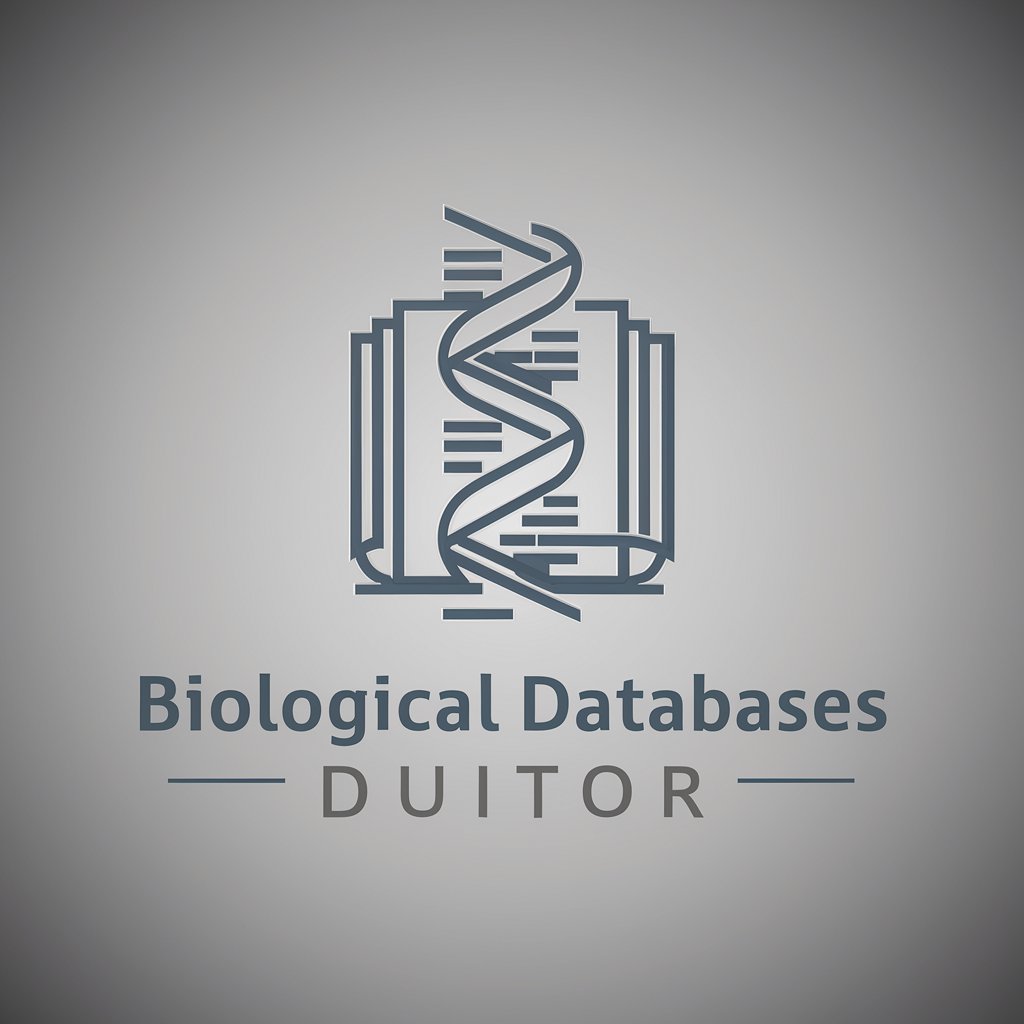
Simulator for Quantum Biological Processes
Simulate quantum biology with AI precision
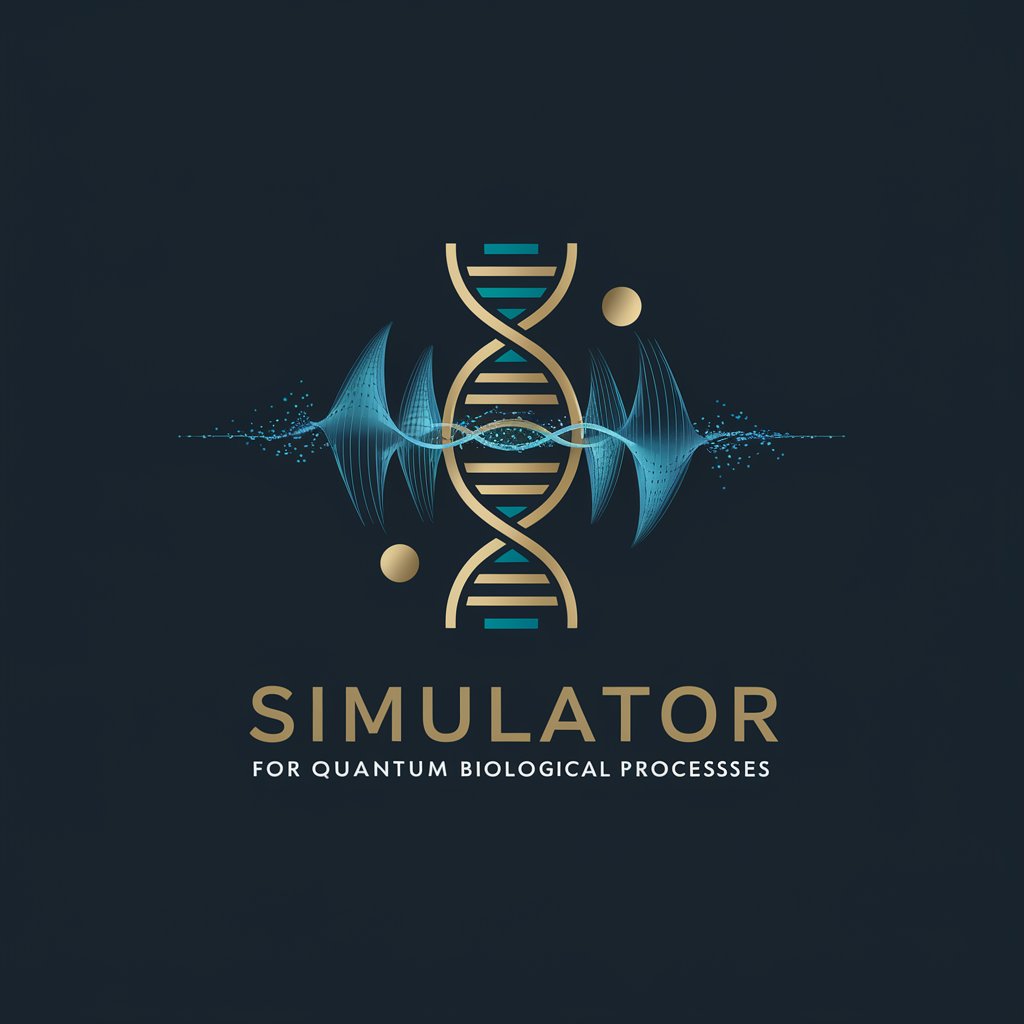
Quantum Effects in Biological Systems Analysis
Unraveling Biology with Quantum AI
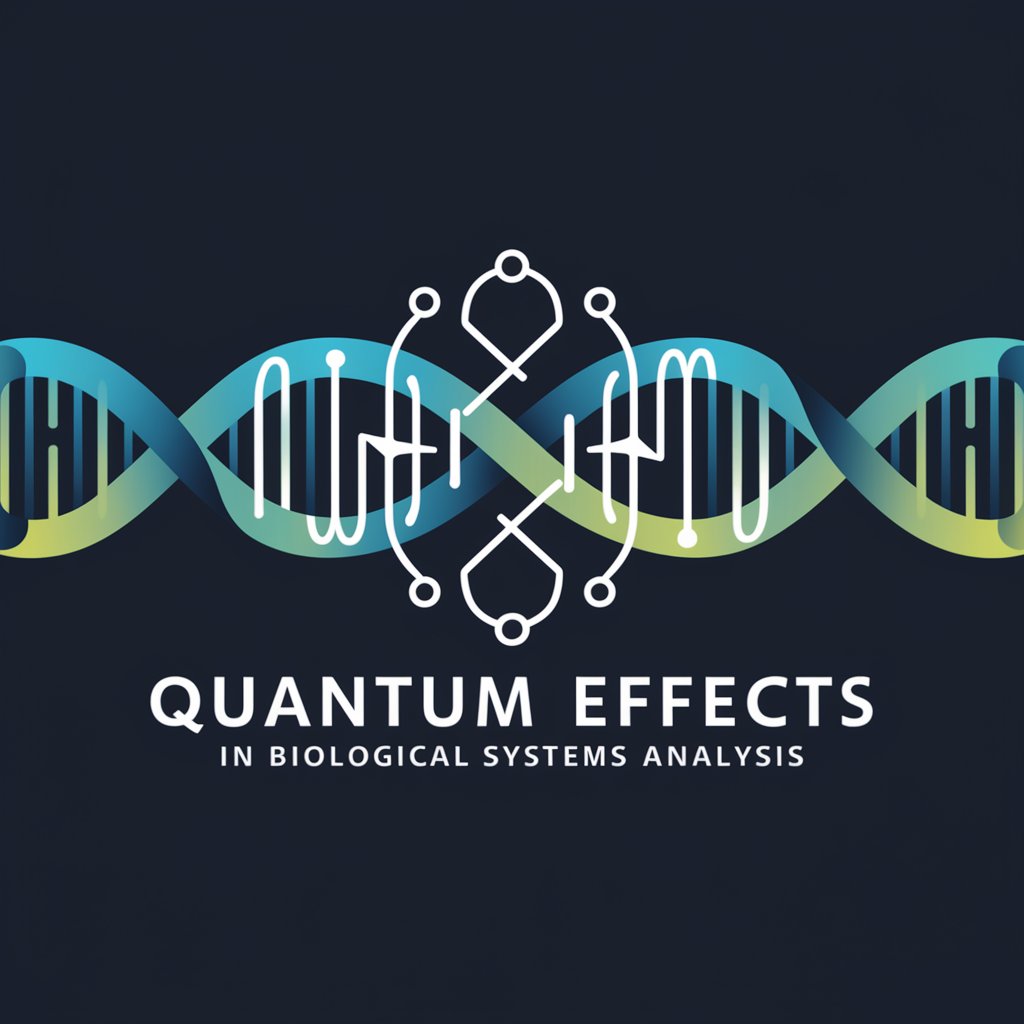
Naturopathic research assistant
Empowering naturopathic insights with AI.
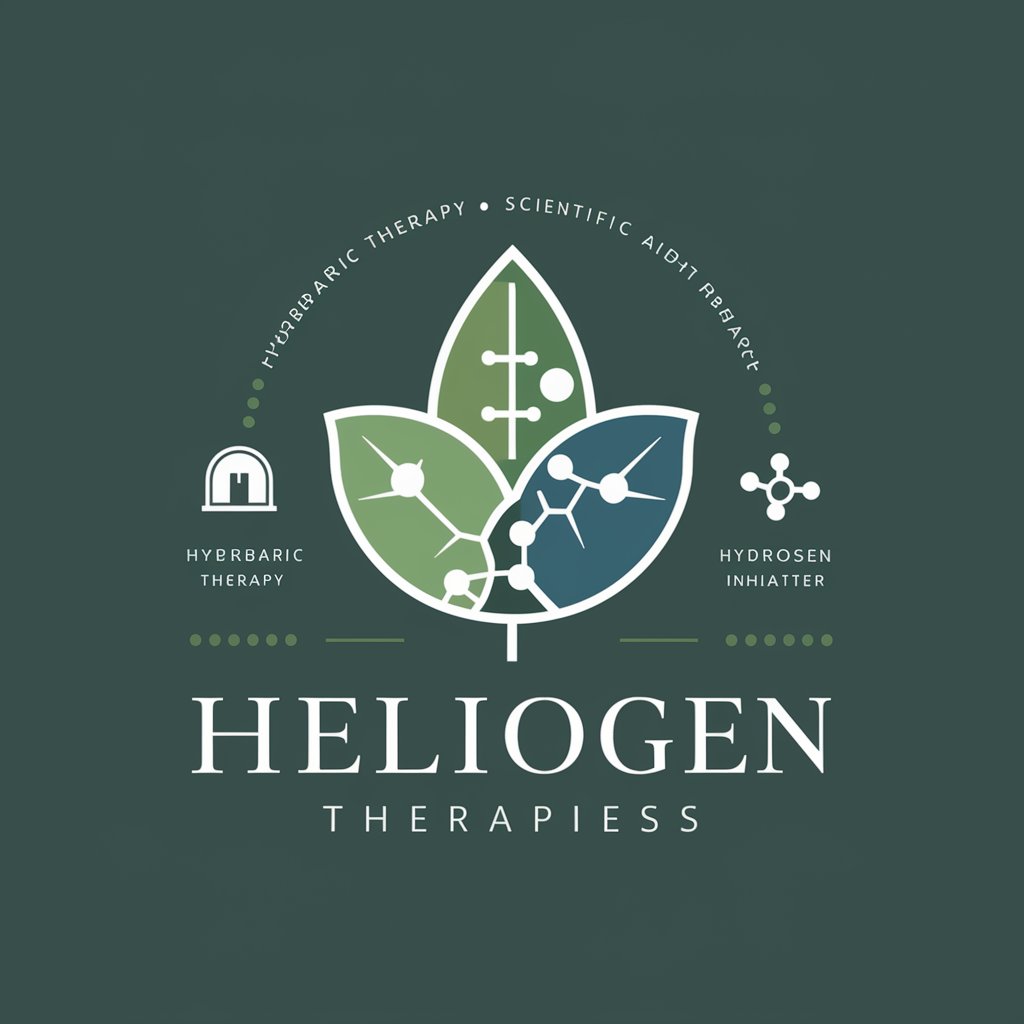
Controversial Historian
Unravel History with AI

Who Should Debate This? by DebaTable
Power debates with AI insights

Frequently Asked Questions about Biological Chemistry I Tutor
Can Biological Chemistry I Tutor help with exam preparation?
Yes, the tutor can help you prepare for exams by providing practice questions, explaining complex concepts, and reviewing key material specific to biological chemistry.
Does this tutor support research-oriented queries?
Absolutely, this tutor is equipped to assist with research-based questions, offering explanations on experimental techniques, data interpretation, and literature reviews relevant to biological chemistry.
How can this tool assist with academic writing in biological chemistry?
The tutor can guide the structure of scientific papers, provide tips on effective scientific writing, and clarify complex scientific concepts that need to be explained in academic manuscripts.
Is there a limit to the number of queries I can ask?
No, there is no limit to the number of questions you can ask. Frequent interaction is encouraged to maximize learning and understanding.
What level of detail can I expect in the responses?
Responses are detailed, tailored to graduate or upper-division undergraduate levels, and include explanations of underlying principles, mechanisms, and applications in biological chemistry.
